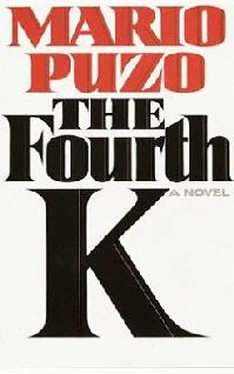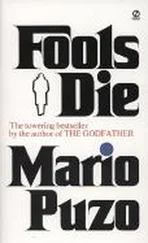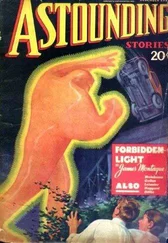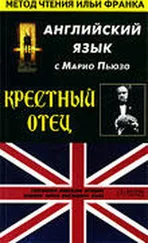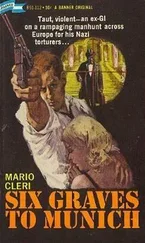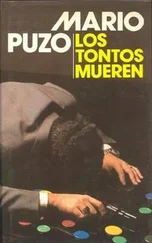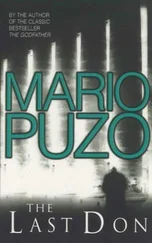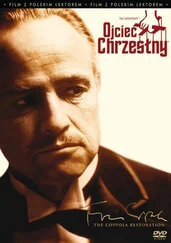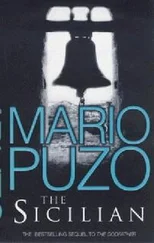In the Red Room they were all waiting for him. The Vice President, Helen Du Pray, was stunningly regal in white satin. The President's staff were reflections of the President, all in formal clothes. Arthur Wix, Oddblood Gray, Eugene Dazzy and Christian Klee formed their own little circle, solemn and tense with the importance of the day. Francis Kennedy smiled at them. His Vice President and these four men were his family.
When President Francis Xavier Kennedy stepped out of the White House, he was astonished to see a vast sea of humanity that filled every thoroughfare, that seemed to blot out all the majestic buildings, overflowed all the TV vans and media people behind their special ropes and marked grounds. He had never seen anything like it, and he called to Eugene Dazzy, "How many are out there?"
Dazzy said, "A hell of a lot more than we figured. Maybe we need a battalion of marines from the naval base to help us control traffic."
"No," the President said. He was surprised that Dazzy had responded to his question as if the multitudes were a danger. He thought it a triumph, a vindication of everything he had done since the tragedies of last Easter Sunday.
Francis Kennedy had never felt surer of himself. He had foreseen everything that would happen, the tragedies and the triumphs. He had made the right decisions and won his victory. He had vanquished his enemies.
He looked over at the huge crowd and felt an overwhelming love for the people of America. He would deliver them from their suffering, cleanse the earth itself.
Never had Francis Kennedy felt his mind so clear, his instincts so true. He had conquered his grief over the death of his wife, the murder of his daughter. The sorrow that had fogged his brain had cleared away. He was almost happy now.
It seemed to him that he had conquered fate and by his own perseverance and judgment had made possible this present and glorious future. He stepped out in the snow-filled air to be sworn in and then lead the inaugural parade down Pennsylvania Avenue to start on his road to glory.
David Jatney had registered himself and Irene and Campbell in a motel a little over twenty miles from Washington, D.C., because the capital itself was jammed. The day before the inauguration, they drove into Washington to see the monuments, the White House, the Lincoln Memorial and all the other sights of the capital. David also scouted the route of the inaugural parade to discover the best place to stand.
On the great day they rose at dawn and had breakfast at a roadside diner.
Then they went back to the motel to dress in their best clothes. Irene was uncharacteristically careful setting and brushing her hair. She wore her best faded jeans, a red shirt and a green floppy sweater over it that David had never seen before. Had she kept it hidden or had she bought it here in Washington? he wondered. She had gone off by herself for a few hours, leaving Campbell with him.
It had snowed all night and the ground was covered white. Big flakes were lazily drifting through the air. In California there was no need for winter clothing, but on the trip East they had bought windbreakers, a bright red one for Campbell because Irene claimed she could easily find him then if he strayed, Jatney a serviceable bright blue, and Irene a creamy white, which made her look very pretty. She also bought a knitted cap of white wool and a tasseled cap for Campbell in bright red. Jatney preferred to be bareheaded he hated any kind of covering.
On this inauguration morning they bad time to spare, so they went out into the field behind the motel to build Campbell a snowman. Irene had a spasm of giddy happiness and threw snowballs at Campbell and Jatney.
They both very gravely received her missiles but did not throw any back.
Jatney wondered at this happiness in her. Could the thought of seeing Kennedy in the coming parade have caused it? Or was it the snow, so strange and magical to her California senses.
Campbell was entranced by the snow. He sifted it through his fingers, watching it disappear and melt in the sunshine. Then he began cautiously destroying the snowman with his fists, punching tiny holes in it, knocking off the head. Jatney and Irene stood a little distance away, watching him. Irene took Jatney's hand in hers, an unusual act of physical intimacy on her part.
"I have to tell you something," she said. "I've visited some people here in Washington-my friends in California told me to look them up. And these people are going to India and I'm going with them, me and Campbell. I've arranged to sell the van, but I'll give you money out of it so you can fly back to Los Angeles."
David let her hand go and put his hands in the pockets of his windbreaker. His right hand touched the leather glove' that held the.22 handgun, and for a moment he could see Irene lying on the ground, her blood eating up the snow.
When the anger came he was puzzled by it. After all, he had decided to come to Washington in the pitiful hope that he might see Rosemary, or meet her and Hock and Gibson Grange. He had dreamed these past days that he might even be invited to another dinner with them. That his life might change, that he would get a foot in the door that opened into power and glory. So wasn't it natural for Irene to want to go to India to open the door into a world she yearned for, to make herself something more than an ordinary woman with a small child working at jobs that could never lead to anything? Let her go, he thought.
Irene said, "Don't be mad. You don't even like me anymore. You would have ditched me if it hadn't been for Campbell." She was smiling, a little mockingly but with a touch of sadness.
"That's right," David Jatney said. "You shouldn't take the little kid to wherever the hell you feel like going. You can barely look out for him here."
That made her angry. "Campbell is my child," she said. "I'll bring him up as I please. And I'll take him to the North Pole if I want to."
She paused for a moment and then said, "You don't know anything about it. And I think you're getting a little queer about Campbell."
Again he saw the snow stained with her blood, little flashing rivers, a prickling of red dots. But he said with complete control, "What exactly do you mean?"
"You're a little weird, you know," Irene said. "That's why I liked you in the beginning. But I don't know exactly how weird you are. I worry about leaving Campbell with you sometimes."
"You thought that, and then you left him with me anyway?" Jatney said.
"Oh, I know you wouldn't harm him," Irene said. "But I just thought me and Campbell should split and go on to India."
"It's OK," David said.
They let Campbell completely destroy the snowman, then they all got into the van and started the twenty-mile drive into Washington. When they pulled into the interstate, they were astonished to see it full of cars and buses as far as the eye could see. They managed to inch into the traffic, but it took four hours before the endless monstrous steel caterpillar spilled them into the capital.
The inaugural parade wound through the broad avenues of Washington, led by the presidential cavalcade of limousines. It progressed slowly, the enormous crowd overflowing the police barricades at spots and impeding progress. The wall of uniformed police began to crumble under the millions of people who pushed against them.
Three cars full of Secret Service men preceded Kennedy's limousine with its bulletproof glass bubble. Kennedy stood inside that glass bubble so that he could acknowledge the cheers of the multitude as he rode through Washington. Little waves of people surged up to the limousine itself, then were driven back by the inner circle of Secret Service men outside the car. But each little wave of frantic worshipers seemed to lap closer and closer. The inner circle of guards were pressed back against the presidential limousine.
Читать дальше
